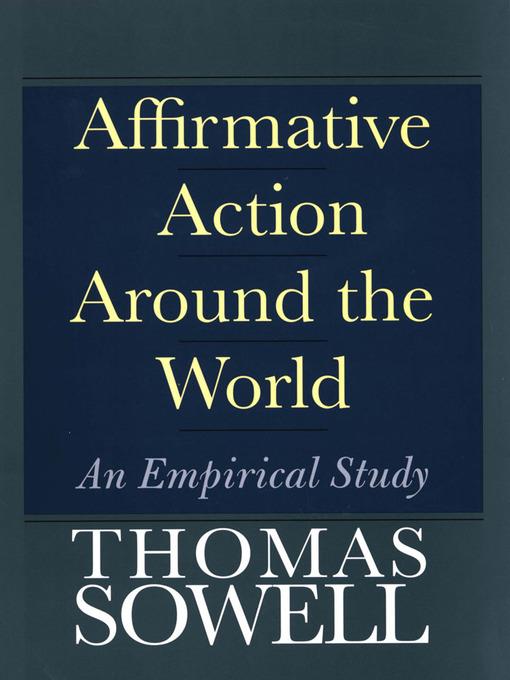
Affirmative Action Around the World
An Empirical Study
کتاب های مرتبط
- اطلاعات
- نقد و بررسی
- دیدگاه کاربران
نقد و بررسی

February 15, 2004
Preferring members of specified groups in higher education, employment, receipt of government services, getting business contracts, and so on is a worldwide phenomenon whose effects are demonstrable. Black economist Sowell focuses on affirmative action in India, Malaysia, Sri Lanka, Nigeria, and the U.S. In those nations, preferences for minorities metamorphosed into preferences for majorities (e.g., women, when made affirmative-action candidates in the U.S., tipped the numbers of the preferred to more than half the populace), intergroup friction increased (Sri Lanka, once a model of ethnic cooperation, descended into civil war, as did Nigeria), "brain drain" occurred (in Malaysia, preferences for less-educated Malays led to massive Chinese emigration and the ouster of Chinese-dominated Singapore from the Malay federation), and/or something else bad happened. Most damning is that in all five countries, the upper crust of preferred groups reaped the lion's share of benefits. Affirmative action is never rejected, however, because it is evaluated "in terms of its rationales and goals rather than its actual consequences." Invaluable argumentation, more accessible than usual for Sowell.(Reprinted with permission of Booklist, copyright 2004, American Library Association.)

























دیدگاه کاربران